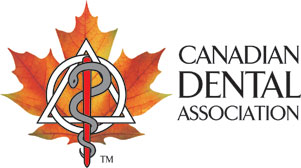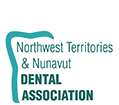Preamble
Hospital dental programs exist to meet the needs of special patient populations who face barriers to accessing oral health care in the private dental office setting, including medically compromised individuals and mentally or physically disabled individuals. These programs also tend to serve as a community safety net, providing emergency dental care to individuals who face financial barriers to accessing care in the private practice sector. In addition to provision of basic oral health care to these special patient groups, university affiliated hospital dental programs also serve a tertiary health care role, providing expertise in the investigation and management of complex oral disorders or oral manifestations of systemic disease. Finally, these university affiliated hospital dental programs also serve an essential role in undergraduate and postgraduate dental education.
In the current economic climate facing health care, all patient service and educational programs are facing the prospect of continued reduction of provincial funding. In approaching decisions regarding provincial funding of dental programs, it is important to consider the integral role of oral health as a component of overall health status, and the increasingly important role of the dental professional as a member of the team of health care providers.
Dental Care for Special Patient Populations
The important role of hospital based dental programs is increasing, as changing population, demographics and disease patterns have led to an increase in the number of individuals seeking basic oral health care, with concomitant medical problems that have an impact on the delivery of dental treatment.
The patient care mandate of a comprehensive hospital dental program can be divided into primary and adjunctive roles. The primary roles are summarized below:
- Provision of comprehensive oral health care (including provision of dental treatment under general anaesthesia when necessary) to medically compromised, physically handicapped or mentally handicapped individuals.
- Provision of 24 hour emergency service to the community.
-
Provision of other tertiary diagnostic/management expertise, such as:
- Major oral and maxillofacial surgical procedures requiring hospital facilities.
- Multidisciplinary Orofacial Pain Clinic
- Mouth Clinic (Diagnosis and management of oral disorders or oral manifestations of systemic disease)
- Maxillofacial prosthetic rehabilitation of anatomical defects resulting from congenital disorders, cancer therapy or trauma.
In addition to these primary roles, there are also important adjunctive roles for the hospital dental program in the management of patients on other medical or surgical services. This ranges from treatment of incidental dental complications or emergencies arising during hospitalization (e.g. toothache, dental trauma during anaesthesia intubation, etc.) to the provision of essential dental treatment that is a central component of the overall standard of medical care for a number of serious medical disorders.
Dental foci of infection present special risks for a broad range of medical disorders/procedures including open heart surgery, oncology patients undergoing radiotherapy or chemotherapy, and organ transplant or bone marrow transplant patients.
There are a number of scenarios that can be considered wherein fiscally driven cutbacks in funding of hospital dental services could have a negative impact on the overall management of serious medical disorders. In leukaemia patients, for example, up to 25% of the serious, potentially fatal infections arising during remission-induction chemotherapy result from the exacerbation of pre-existing dental or periodontal infection.
Preventive and interceptive dental measures are an important and cost-effective means of preventing morbidity and mortality in these patients. These individuals are best managed in a hospital based dental program because, depending on their pre-chemotherapy blood counts, special management procedures may be required to prevent haemorrhagic or infectious complications associated with dental treatment.
Similarly, there is an important, cost-effective role for hospital dental services in the management of patients undergoing organ transplantation. The risk of infection in these patients, who are immunosuppressed to prevent transplant rejection, is a serious one. In the case of liver transplant patients, for example, complicating infections have been found to occur in up to 59% of these patients, and to be fatal in 5-16%.
The goal of basic dental intervention, before and after organ transplantation, is the identification and treatment of oral foci of infection which can give rise to bacteremia and serious systemic infections in these individuals. The cost of basic dental assessment and interceptive care is minimal, when considered in the context of the overall cost of the preoperative work-up, transplantation, follow-up care, and immunosuppressive medications for these patients (heart $149K, lung $147K, liver $134K).
There are a number of reasons why the dental management of these organ transplant patients should be provided in a hospital setting by dentists trained in the management of medically compromised patients, working in close consultation with the patient's physician. The liver transplant patient can be used as an illustrative example.
Dental Care for Indigent Patients
In addition to providing oral health care to individuals with special medical or physical challenges, hospital dental programs may play an important role in the provision of basic and emergency dental care to individuals with financial barriers to accessing care in the private sector. Many of these individuals are not eligible for social assistance programs covering dental treatment, and the hospital dental program serves as a last resort for relief of pain or treatment of acute infection.
Hospital dental programs disproportionately carry the burden of providing emergency dental care for the community's economically deprived. In many instances, the hospital dental program must write-off significant potential revenues that cannot be collected in these cases, relying on global operating budgets to partially offset the cost of provision of this essential community service.
Undergraduate and Postgraduate Education
Changes in population demographics and changing patterns of disease in our population have led to an increase in the number of individuals who will present to the new graduate with various complicating health problems that have an impact on the management of complex dental treatment needs. At the same time, there has been a growing tendency, through increased specialization, to fragmentation of dental health care delivery. This tends to create a disadvantage for residents of smaller communities or rural areas where access to specialist care is limited.
Faculties of Dentistry have addressed this challenge through the development of hospital based components to their undergraduate curriculum. Educational experiences that are uniquely available in the hospital setting include training in the dental treatment of medically compromised, physically handicapped, and mentally handicapped patients in an ambulatory setting; training in medical risk assessment of dental patients; training in the management of dental and medical emergencies; training in the use of conscious sedation techniques for the provision of comprehensive dental care to anxious patients; and experience in managing hospital dental inpatients from admission through discharge, including experience in standard operating room protocols.
Most hospital rotations in dental undergraduate programs average two weeks in duration and can therefore only serve as a minimal introductory experience. Elective postgraduate educational opportunities have therefore been created in hospital based General Practice Residency (GPR) programs for new dental graduates.
The GPR program offers a new dental graduate:
- Improved understanding of the relationship of medical disorders to oral disease and dental care.
- Training in the delivery of comprehensive dental care to medically compromised and handicapped individuals.
- Training in the management of dental emergencies, as well as the primary management of common medical emergencies that can arise in the dental clinic setting.
- Extended didactic and clinical training in a cross-section of dental specialty disciplines.
Surveys have shown that GPR graduates develop a practice profile that includes a broader range of clinical treatment, necessitating fewer referrals to specialists. A young dentist, having completed such a program, is in a position to more confidently enter general practice in a small community or rural setting, without a strong network of specialist support readily available.
Provincial funding in support of the stipends for postgraduate residents in the GPR program represents an investment with a "multiplier effect", since these individuals also serve as mentors for undergraduate dental students rotating through the hospital program. It is certainly reasonable to expect hospital dental residents to generate fee income, in the course of their patient care responsibilities, to help defray the operating costs of the hospital dental program. However, undue pressure to increase fee generation by dental residents results in reduction of the didactic components of the programme and the off-service clinical rotations outside of the dental department which are integral components of the GPR program, and a requirement for accreditation. If a GPR is expected to be completely self-supporting through fee income, it is impossible to maintain the quality of the educational experience and accreditation of the program.
Summary and Recommendations
- Health care policy planners must recognize that the provision of oral health care is an integral part of the concept of accountability to the community, comprehensive care to patients, and the standard of care for many disease processes and medical diagnoses.
- Changing population demographics and disease patterns are increasing the numbers of patients who face barriers to accessing basic oral health care in the traditional dental office setting. Hospital dental programs serve the special needs of these patients, and also provide a safety net for indigent patients. These programs should continue to receive provincial funding.
- The critical interface with medicine, so essential to the changing face of dental education and clinical practice, cannot be provided within the dental school environment, underscoring the importance of hospital rotations for all undergraduate dental students and the value of hospital based postgraduate general practice residencies. These educational programs should continue to receive provincial funding.
Approved
CDA Board of Directors
February 2005











